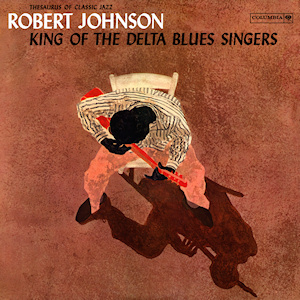 When I was a child, my parents and I went on a lot of road trips. While logging many miles on the highways of Canada and the United States, we listened to a lot of music.
When I was a child, my parents and I went on a lot of road trips. While logging many miles on the highways of Canada and the United States, we listened to a lot of music. There was one particular road trip that stands out in my mind. It is a vivid recollection – not of the destination itself, but of the impact a few precious moments in time had on me during that trip. Funny thing is, those precious moments were in our driveway.
I think I was probably about 14 years old, maybe a little older. The dates escape me. We were just arriving in Brockville after returning from a road trip to points lost in memory. I was sitting in the back of our silver Toyota Celica. My parents always occupied the front seats – I had the back all to myself.
We had just pulled into our driveway when a song came on the radio. I distinctly remember that the first few chords stunned me. My father was just about to take the key out of the ignition and I remember asking him to keep the radio on until the end of the song.
The song? It was “Crossroads” – a live version recorded by Cream on March 10, 1968 at the Winterland Ballroom in San Francisco. At this moment in time, I was exposed to Eric Clapton’s stunning solo in this Robert Johnson classic. I’d never heard anything like it. Crossroads. Wow. There was something absolutely magical about it.
I was floored. I realized that I had to find out just who this Robert Johnson was. What I was to discover was that nobody really knew.
I didn’t think that it would be that difficult to learn about this bluesman that Clapton had raved about in any number of interviews. Suddenly, I had a degree of heightened awareness – that his name appeared in many contexts with many musicians. Johnson had become an almost mythological character of the deep south. Legend had it that if you went to a deserted crossroads at midnight with your guitar, the devil would tune it for you in exchange for your soul. You would give up your soul to the devil, but you would play the blues like no other.
Robert Johnson had gone down to the crossroads – and the rest was history. Epic stuff, for sure.
If that wasn’t enough to get me wondering, then his music surely did. The shimmering slide guitar, the soulful yet tormented voice. So many branches on the rock and roll (and blues) family tree went back to him – if you went back far enough. Sure, I had gone back to the sixties with Clapton and Hendrix, but it went far beyond this.
Little was known about Johnson. I found myself digging deeper and deeper. Johnson recorded just two albums. His original recordings were done on November 27, 1936 in San Antonio at the Gunther Hotel (which still stands). I kept digging. I eventually found a copy of the original vinyl record, Johnson’s first album. Then I found the second album at a record store in Kingston while I was at university. I can remember the excitement in knowing that I had managed to find a copy of Robert Johnson’s cumulative musical recordings on vinyl. That excitement still exists to this day.
Shortly after I moved to Austin, they released all of his material on CD for the first time. And suddenly, there was a depth of sound, a depth of emotion in his singing and in his guitar playing, that I had only imagined before.
What is perhaps more important is that this moment was truly serendipitous. This was at a time when I was discovering music, especially blues music. The blues introduced me to self expression in the deepest, most soulful way. The blues also got me playing the guitar, exploring my inner being with each and every bent note, each chunka-chunka-chunka of bass strings under the wail of a glass slide. Robert Johnson was the epicenter of it all.
As life would have it, I found myself searching for Robert while searching for meaning and understanding in my own life. And it all started with that one moment in the back of a silver Toyota Celica. Life would never be the same again.
Photo credit: Wikipedia

 "Running Injuries: Etiology And Recovery- Based Treatment" (co-author Bridget Clark, PT) appears in the third edition and fourth editions of "Clinical Orthopaedic Rehabilitation: A Team Approach" by Charles Giangarra, MD and Robert C. Manske, PT.
"Running Injuries: Etiology And Recovery- Based Treatment" (co-author Bridget Clark, PT) appears in the third edition and fourth editions of "Clinical Orthopaedic Rehabilitation: A Team Approach" by Charles Giangarra, MD and Robert C. Manske, PT.
 Allan Besselink, PT, DPT, Ph.D., Dip.MDT has a unique voice in the world of sports, education, and health care. Read more about Allan here.
Allan Besselink, PT, DPT, Ph.D., Dip.MDT has a unique voice in the world of sports, education, and health care. Read more about Allan here.
 Top 5 finalist in three categories: "Best Overall Blog", "Best PT Blog" and "Best Advocacy Blog".
Top 5 finalist in three categories: "Best Overall Blog", "Best PT Blog" and "Best Advocacy Blog".